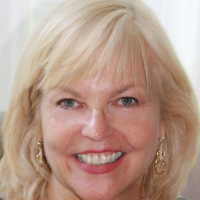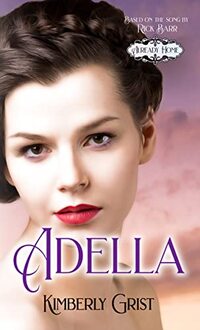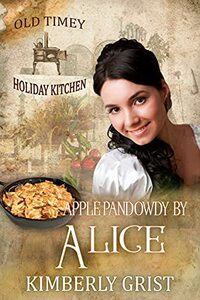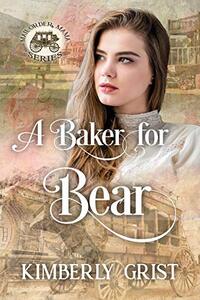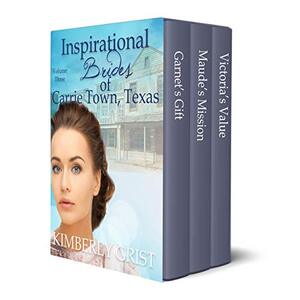Kimberly Grist Interview Published on: 14, Aug 2019
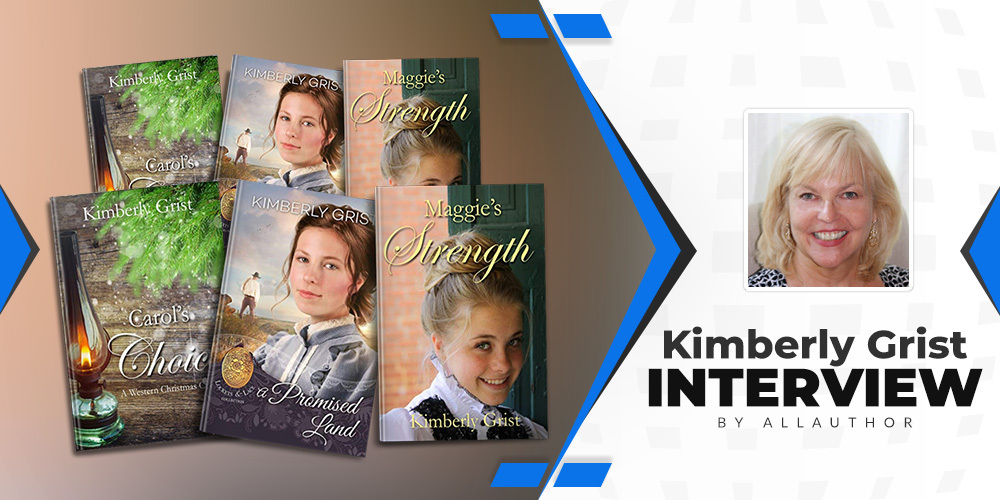 What did you enjoy about writing as a young girl? Did you ever dream of becoming an author then?
What did you enjoy about writing as a young girl? Did you ever dream of becoming an author then?
As a young girl, I enjoyed making up stories to make people laugh. But in reality I wanted to be Laura Ingalls Wilder of Little House on the Prairie fame. The problem was I was born in the wrong century.
What inspired you to start writing in 2017?After my oldest son's diagnosis of cancer and the death of my youngest brother, I felt motivated to pursue my dream. My son's illness and my brother's death made me reevaluate my life's goals. I felt keenly aware of the passing of time and forgive the cliche but thought if not now, then when? I could imagine my brother teasing me about the direction I wanted to take my stories. “Is there such a thing as Historical Christian Romance?”
What do you love the most about historical fiction? What grabbed your interest in historical romance?Whenever I read historical fiction, I visualize the events in a more personal way. Inspired by stories told to me by my grandparents, my particular interest lies in the 19 th century. My husband was a history teacher for years and I've often remarked to him that I would be a much better student now.
My grandmother was a fan of romance author, Grace Livingston Hill, who was born in 1865. My sister and I enjoyed reading her collection and read each of her stories more than once.
What was your inspiration behind the story of "Maggie's Strength?" How long did it take you to write this book?In my debut novel, Rebecca’s Hope, I introduced colorful and innovative young women in a fictional western town in the late 19 th century. The heroine Maggie sprang from the original story. The character was inspired by my mischievous grandmother Magdalena. Although the time and place are fictional, I imagined how either of my grandmother’s would have handled the situations and my pint-sized blacksmith was born.
The concept of the innovative women of Carrie Town Texas took me about a year to come up with and Maggie’s Strength took me about three months to write.
What kind of research is involved while writing a historical fiction book? What is the most unusual fact you have learned while researching for your book?I spent months researching and took a few road trips to Texas and visited historical sights and museums. My focus was on the life and vocations of women during the 19 th century.
I was most surprised by the rules a teacher had to adhere to remain employed. For example, male teachers could court one evening a week and twice if they attended church regularly. But female teachers were not allowed to court or to be seen in public after dark unless it’s for a school or church function. They were also required to spend their days off working in the community, to teach Sunday School and sing in the choir. Even if the school board allowed a teacher to have a beau, which they didn’t, I don’t know where she would have found the time. They had rules for everything, including how and when petticoats and other unmentionables could hang on the clothesline.
Writing 16 books in a series is a huge challenge in itself. What challenges did you face while writing the series, Lockets and Lace?The Lockets and Lace Series is a collaborative project and I was thrilled to be able to participate this Spring. The story criteria was to produce an original sweet historical romance novel between 1850 through 1920. The common theme was a visit to the Bavarian Jewelry and Watch Repair Shop in St. Joseph Missouri, a locket and lace. In A Promised Land the heroine inherited a locket and lace veil purchased from the shop for her mother.
What I thought would be challenging was to adhere to the outline, since it was not of my creation. That turned out to be easy. What I found difficult was not second-guessing myself. I wanted my offering to the collection to be stellar. The story is one of my favorites thus far.
How hard is it to establish and maintain a career in fiction writing? Why did you choose this route?Here I go with a cliché again, but what worth having, isn’t difficult? I chose this route because I wanted to encourage people. I believe you should come away refreshed and inspired after reading a book. In my personal life, I wear so many hats working inside and outside the home. I work hard, try harder and then begin again the next day. Despite my best efforts, sometimes life stinks. Bad things happen. I want my stories to provide an outlet, an opportunity to relax and escape to a place where obstacles are met and overcome.
What would you say characterises your writing? In what ways do you try and stand out from the ever growing community of romance writers?I stay away from tormented dysfunctional heroines. My characters are everyday people who also happen to be independent, intelligent and ahead of their time. But the key to my stories is the combination of history, humor and romance with an emphasis on faith, friends and good clean fun.
Who inspired the character of eighteen-year-old, Emma Brady? Do you relate to her character in any way?Have you been reading my diary? I grew up in a large family and had four brothers and two sisters. I loved doing everything my older brothers did. The fictional character Emma benefitted from a supportive father who encouraged her to follow her interests even though society would dictate she stick to housekeeping. Like me, Emma was in love with her childhood sweetheart. Even though that’s contrary to most storylines not riddled with unnecessary conflict, it’s a tale of love separated by distance.
Where do you get most of your plot and/or character ideas from?The whole premise of my stories made up of independent, intelligent young women who overcome obstacles through faith, family and friends springs from my grandmother, Lois who was also ahead of her time, pursued a career and became a nurse. She was the similar to the iconic Rosie the Riveter during WWII, but unlike Rosie she worked in a hospital instead of a factory. Other characters, especially the children in my stories materialize from family members and those I’ve taught in Children’s Church over the years.
Which scene in "Rebecca's Hope" was the hardest to write and why?Without a doubt, the most difficult scene was for me as the author, choosing to allow Rebecca to forgive her father. I finally decided to write it in the way I thought I might have handled the situation. Sometimes it’s hard to forgive others even when they seem to be sincerely repentant.
When it comes to book marketing and promotions, what were some rookie mistakes you made with your first one, and what were the lessons you learned from that?The first one is thinking that writing the book was the most difficult part. The second is not having a plan. It’s important to have marketing items ready and have the ability to post and create attractive memes and ads. I recently used AllAuthor to create a video and was so pleased with not only the way it turned out but that I was able to produce such a quality product myself.
How often do you write in a week? Do you try to write a certain goal number of words or chapters a day or do you just go with the flow?Since I work full time at another vocation, my time for writing is in the evenings and on the weekends. At first my goal was 1000 words a day. That rarely happens. One of my problems is I can get hung up on the smallest detail. I’ll then research for hours what ends up only adding a paragraph or two. For example, I recently spent days researching houses built from sod. Although I enjoyed it and I believe my research helped me to create an accurate picture for the story, I added very few words to the story that week.
Have you ever thought of collaborating and writing something with another author? If so, who would you want to work with?To be asked to collaborate and write with anyone is thrilling. But I just looked at the top twenty in my genre of best sellers in Christian Historical fiction and found two authors that I love, Tracie Peterson and Karen Witemeyer. I would be happy if one of them said, “I read your book.” And over the moon if they liked it.
What is your honest opinion on AllAuthor? In what ways has this website helped you and what are some ways that you think we can change or improve for the better.My experience has been great. The memes are exceptional, and the tweets are automatic. There are other tools that I need to take the time to utilize such as the GIFs and banners. Even though I watched the instructional video I wasn’t able to complete the task to my liking.
Share Kimberly Grist's interview
As a young girl, Kimberly Grist enjoyed making up stories to make people laugh. Inspired by stories told to her by her grandparents, her particular interest lies in the 19th century. She wants her stories to provide an outlet, an opportunity to relax and escape to a place where obstacles are met and overcome. In her debut novel, Rebecca’s Hope, she introduced colorful and innovative young women in a fictional western town in the late 19th century. Since she works full time at another vocation, her time for writing is in the evenings and on the weekends.
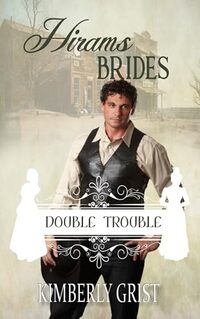 Hiram's Brides - Book 14: Double Trouble
Genre: Historical Romance, Western Romance, Historical Fiction, Christian Fiction, Religion & Spirituality
Hiram's Brides - Book 14: Double Trouble
Genre: Historical Romance, Western Romance, Historical Fiction, Christian Fiction, Religion & Spirituality
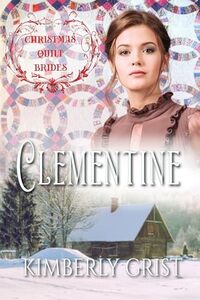 Clementine : Christmas Christmas Quilt Brides Book 15
Genre: Historical Romance, Western Romance, Historical Fiction, Women's Fiction, Christian Fiction
Clementine : Christmas Christmas Quilt Brides Book 15
Genre: Historical Romance, Western Romance, Historical Fiction, Women's Fiction, Christian Fiction
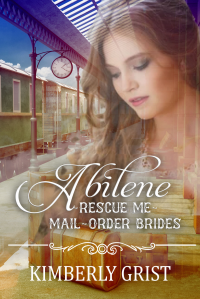 Abilene: Rescue Me - (Mail Order Brides) Book 17
Genre: Historical Romance, Romantic Suspense, Western Romance, Historical Fiction, Christian Fiction, Religion & Spirituality
Abilene: Rescue Me - (Mail Order Brides) Book 17
Genre: Historical Romance, Romantic Suspense, Western Romance, Historical Fiction, Christian Fiction, Religion & Spirituality
 A Match for Gabe (The Matchmaker, Agatha Returns, Book 8)
Genre: Historical Romance, Romance, Western Romance, Historical Fiction, Women's Fiction, Christian Fiction
A Match for Gabe (The Matchmaker, Agatha Returns, Book 8)
Genre: Historical Romance, Romance, Western Romance, Historical Fiction, Women's Fiction, Christian Fiction
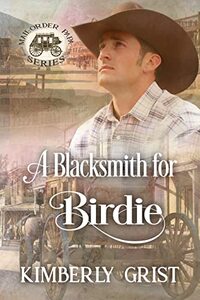 A Blacksmith for Birdie
Genre: Historical Romance, Romance, Historical Fiction, Women's Fiction, Christian Fiction, Teen & Young Adult, Religion & Spirituality
A Blacksmith for Birdie
Genre: Historical Romance, Romance, Historical Fiction, Women's Fiction, Christian Fiction, Teen & Young Adult, Religion & Spirituality
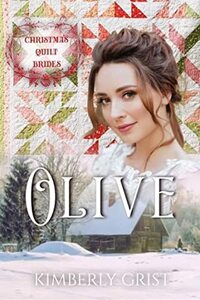 Olive : Christmas Quilt Brides Book 1
Genre: Historical Romance, Western Romance, Historical Fiction, Women's Fiction, Christian Fiction
Olive : Christmas Quilt Brides Book 1
Genre: Historical Romance, Western Romance, Historical Fiction, Women's Fiction, Christian Fiction
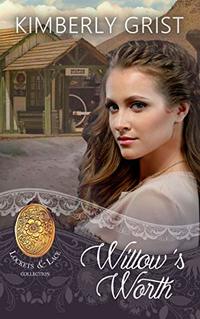 Willow's Worth (Lockets and Lace Book 26)
Genre: Historical Romance, Western Romance, Historical Fiction, Christian Fiction, Humor, Teen & Young Adult
Willow's Worth (Lockets and Lace Book 26)
Genre: Historical Romance, Western Romance, Historical Fiction, Christian Fiction, Humor, Teen & Young Adult
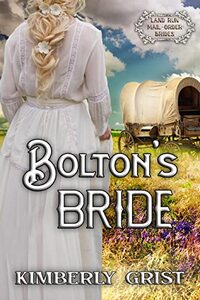 Bolton's Bride: Land Run Mail Order Brides Book 2
Genre: Historical Romance, Western Romance, Historical Fiction, Women's Fiction, Christian Fiction, Teen & Young Adult, Religion & Spirituality
Bolton's Bride: Land Run Mail Order Brides Book 2
Genre: Historical Romance, Western Romance, Historical Fiction, Women's Fiction, Christian Fiction, Teen & Young Adult, Religion & Spirituality
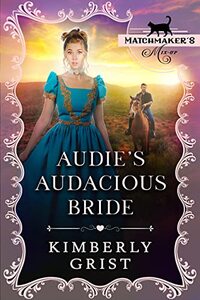 Audie's Audacious Bride: (Matchmaker's Mix-Up Book 17)
Genre: Historical Fiction, Women's Fiction, Humor
Audie's Audacious Bride: (Matchmaker's Mix-Up Book 17)
Genre: Historical Fiction, Women's Fiction, Humor
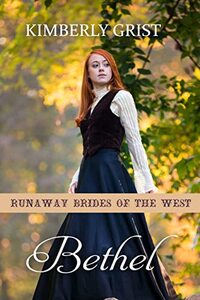 Bethel: Runaway Brides of The West - Book 19
Genre: Historical Romance, Historical Fiction, Women's Fiction, Christian Fiction, Humor
Bethel: Runaway Brides of The West - Book 19
Genre: Historical Romance, Historical Fiction, Women's Fiction, Christian Fiction, Humor
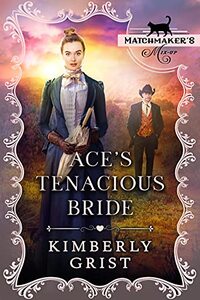 Ace’s Tenacious Bride: (Matchmaker's Mix-Up Book 13)
Genre: Historical Romance, Western Romance, Historical Fiction, Christian Fiction, Teen & Young Adult, Religion & Spirituality
Ace’s Tenacious Bride: (Matchmaker's Mix-Up Book 13)
Genre: Historical Romance, Western Romance, Historical Fiction, Christian Fiction, Teen & Young Adult, Religion & Spirituality
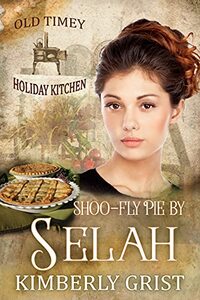 Shoo-fly Pie By Selah: Old Timey Holiday Kitchen Book 2
Genre: Historical Romance, Western Romance, Historical Fiction, Women's Fiction, Christian Fiction, Humor, Religion & Spirituality
Shoo-fly Pie By Selah: Old Timey Holiday Kitchen Book 2
Genre: Historical Romance, Western Romance, Historical Fiction, Women's Fiction, Christian Fiction, Humor, Religion & Spirituality
 A Bride for Alston (The Proxy Brides (volume 53))
Genre: Historical Romance, Western Romance, Christian Fiction, Humor
A Bride for Alston (The Proxy Brides (volume 53))
Genre: Historical Romance, Western Romance, Christian Fiction, Humor
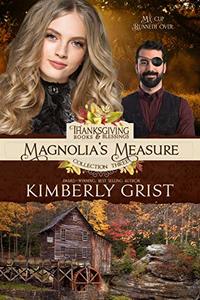 Magnolia's Measure (Thanksgiving Books & Blessings 3)
Genre: Historical Romance, Western Romance, Historical Fiction, Women's Fiction, Christian Fiction, Teen & Young Adult
Magnolia's Measure (Thanksgiving Books & Blessings 3)
Genre: Historical Romance, Western Romance, Historical Fiction, Women's Fiction, Christian Fiction, Teen & Young Adult
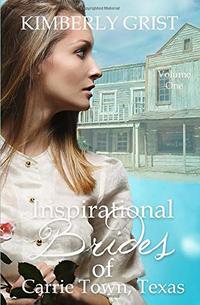 The Inspirational Brides of Carrie Town, Texas
Genre: Historical Romance, Western Romance, Historical Fiction, Christian Fiction
The Inspirational Brides of Carrie Town, Texas
Genre: Historical Romance, Western Romance, Historical Fiction, Christian Fiction
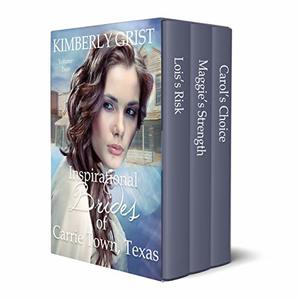 The Inspirational Brides of Carrie Town, Texas: Volume 2
Genre: Historical Romance, Western Romance, Christian Fiction
The Inspirational Brides of Carrie Town, Texas: Volume 2
Genre: Historical Romance, Western Romance, Christian Fiction
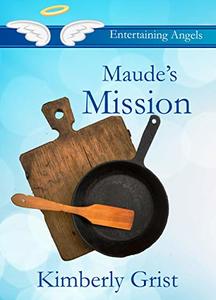 Maude's Mission (Entertaining Angels Book 5)
Genre: Historical Romance, Western Romance, Historical Fiction, Women's Fiction, Christian Fiction, Humor, Teen & Young Adult
Maude's Mission (Entertaining Angels Book 5)
Genre: Historical Romance, Western Romance, Historical Fiction, Women's Fiction, Christian Fiction, Humor, Teen & Young Adult
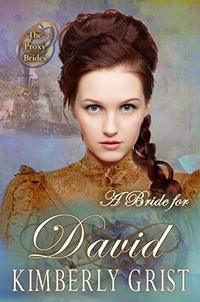 A Bride for David (The Proxy Brides Book 37)
Genre: Historical Romance, Western Romance, Historical Fiction, Women's Fiction, Christian Fiction, Humor, Teen & Young Adult
A Bride for David (The Proxy Brides Book 37)
Genre: Historical Romance, Western Romance, Historical Fiction, Women's Fiction, Christian Fiction, Humor, Teen & Young Adult
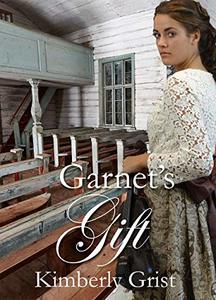 Garnet's Gift: Christian historical romance
Genre: Historical Romance, Historical Fiction, Women's Fiction, Christian Fiction, Humor, Teen & Young Adult
Garnet's Gift: Christian historical romance
Genre: Historical Romance, Historical Fiction, Women's Fiction, Christian Fiction, Humor, Teen & Young Adult
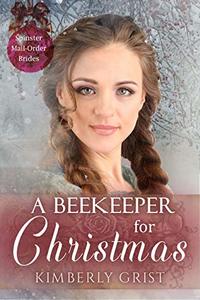 A Beekeeper for Christmas (Spinster Mail-Order Brides Book 25)
Genre: Historical Romance, Western Romance, Historical Fiction, Women's Fiction, Christian Fiction, Humor, Teen & Young Adult
A Beekeeper for Christmas (Spinster Mail-Order Brides Book 25)
Genre: Historical Romance, Western Romance, Historical Fiction, Women's Fiction, Christian Fiction, Humor, Teen & Young Adult
 A Fresh Start for Christmas (Spinster Mail-Order Brides Book 14)
Genre: Historical Romance, Western Romance, Historical Fiction, Christian Fiction, Humor, Religion & Spirituality
A Fresh Start for Christmas (Spinster Mail-Order Brides Book 14)
Genre: Historical Romance, Western Romance, Historical Fiction, Christian Fiction, Humor, Religion & Spirituality
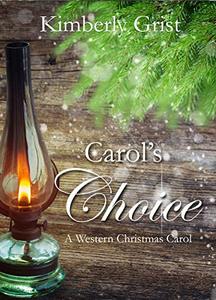 Carol's Choice: A Western Christmas Carol
Genre: Historical Romance, Western Romance, Historical Fiction, Women's Fiction, Christian Fiction, Humor, Teen & Young Adult
Carol's Choice: A Western Christmas Carol
Genre: Historical Romance, Western Romance, Historical Fiction, Women's Fiction, Christian Fiction, Humor, Teen & Young Adult
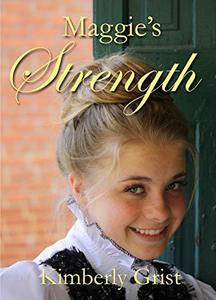 Maggie's Strength
Genre: Historical Romance, Western Romance, Christian Fiction, Humor, Teen & Young Adult
Maggie's Strength
Genre: Historical Romance, Western Romance, Christian Fiction, Humor, Teen & Young Adult
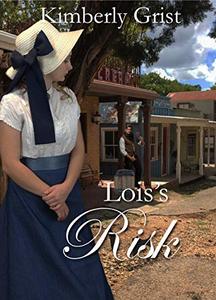 Lois's Risk (Romancing the Farmer Book 3)
Genre: Historical Romance, Western Romance, Historical Fiction, Women's Fiction, Christian Fiction, Humor, Teen & Young Adult
Lois's Risk (Romancing the Farmer Book 3)
Genre: Historical Romance, Western Romance, Historical Fiction, Women's Fiction, Christian Fiction, Humor, Teen & Young Adult
 Emma's Dream
Genre: Historical Romance, Western Romance, Historical Fiction, Women's Fiction, Christian Fiction, Humor
Emma's Dream
Genre: Historical Romance, Western Romance, Historical Fiction, Women's Fiction, Christian Fiction, Humor
 Rebecca's Hope
Genre: Historical Romance, Western Romance, Historical Fiction, Women's Fiction, Christian Fiction, Humor, Teen & Young Adult, Religion & Spirituality
Rebecca's Hope
Genre: Historical Romance, Western Romance, Historical Fiction, Women's Fiction, Christian Fiction, Humor, Teen & Young Adult, Religion & Spirituality
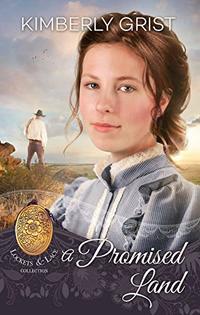 A Promised Land (Lockets and Lace Book 16)
Genre: Historical Romance, Romance, Western Romance, Historical Fiction, Women's Fiction, Christian Fiction, Humor, Teen & Young Adult, Religion & Spirituality
A Promised Land (Lockets and Lace Book 16)
Genre: Historical Romance, Romance, Western Romance, Historical Fiction, Women's Fiction, Christian Fiction, Humor, Teen & Young Adult, Religion & Spirituality
